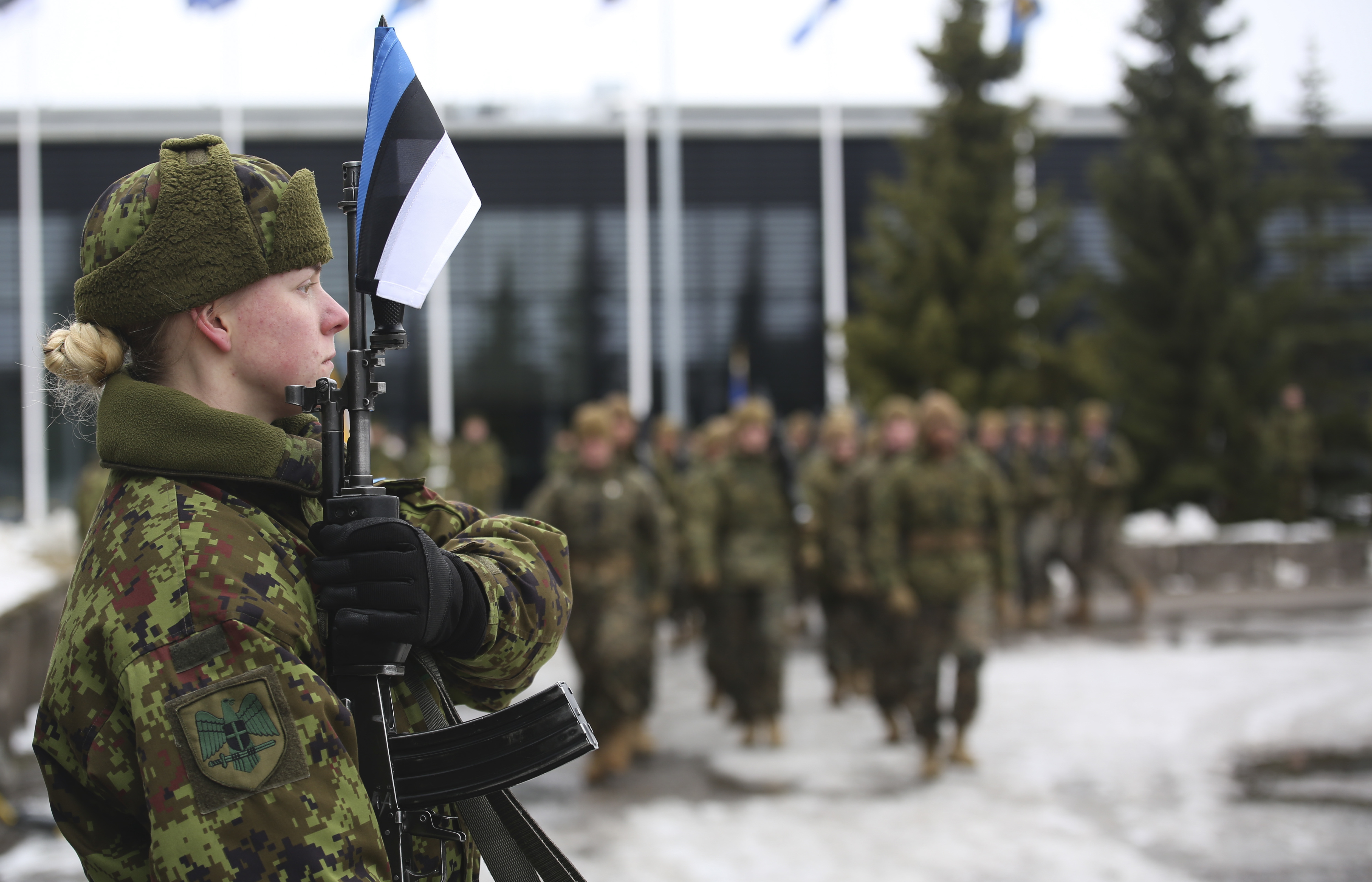
The foreign minister of one of the smallest nations in Europe said NATO only works when all the territories in the alliance are sacred and every member is committed “to die for your neighbor” if it is attacked.
“That has been our mantra” since the Kremlin launched a crippling cyberattack on the Baltic nation and 2007, Urmas Reinsalu said on Tuesday at the Heritage Foundation. Estonians have repeated that message with increased urgency following Moscow’s armed attack on Georgia in 2008, followed by its 2014 annexation of Crimea and active support of separatists in eastern Ukraine.
The annexation and new fighting in Europe finally caused NATO members to re-assess their own security needs, on both sides of the Atlantic, he said.
Joining the alliance means “you have to deliver” on commitments of money and manpower. He noted his country of about 1.3 million spends more than 2 percent of its gross domestic product on security.
It also means answering the call to act alongside its allies in places like Afghanistan and Iraq, he added, and to participate in maritime and air patrols from Iceland to assure sea lanes remain open. In short, “we are coming in together, going out together” on important missions inside and outside of Europe.
Administrations in Washington need to remember those facts when it decries Europeans for not sharing the burden of the alliance’s costs.
“We contribute directly to American security … all around the world,” he said.
“We will succeed only together. There is no alternative.”
In some respects, what happened in 2007’s cyberattack on Estonia, showed the Baltic state to be “the canary in the coal mine.” He said the attack served as a warning that Moscow’s ambitions to extend its influence could come in unprecedented ways and those approaches can be used against any nation.
But in his remarks and answers, he said it took Russia’s moves against Ukraine to re-focus American and NATO’s attention on “war in Europe” again is possible. In answer to a question Reinsalu said he was encouraged by new momentum to end the fighting in Ukraine. He said the alliance and European Union should stand behind the Kiev government.
Sanctions have, “stopped the Russian aggression from moving further,” he added and need to remain in place. Russia “takes it only as a sign of weakness” to lift them without really having to do anything in return. In the case of the new negotiations, he described Moscow’s approach as “hybrid diplomacy,” talking peace while still providing military and economic aid to separatists, and NATO and the E.U. should be wary as talks proceed.
As a reminder of Europeans, he added, “the work of collective defense can never end” and it is every nation’s self-interest to look to its security. “The competition [from great powers like Russia and China] is rising” as in Ukraine and the South China Sea. And the threats can come from the Iand, air, sea, undersea and cyber.
In fiscal teams, “The United States should not provide more than one-half” of the costs of providing for NATO security, Reinsalu said in answer to an audience question.
In his remarks, he noted “we [in Europe] are finally moving in the right direction” in increasing defense spending, including more money for training to meet new threats like cyber and equipment modernization.
“It’s our [European] turn to fight for what is right” by meeting that security spending goal. Reinsalu also hailed the European Union’s commitment of $100 billion to upgrade infrastructure — bridges, roads, ports, and airfields — to allow reinforcements more assured access to continental hot spots in case of a Russian invasion. He also noted the strides made by the “3 Seas” group of nations in bettering their own security and tackling infrastructure challenges from the Baltic to the Adriatic to the Black Sea.
On the eastern frontier of the alliance, as a warning to Russia, “alliance presence in the Baltics has become the norm.” That is an important lesson for all NATO members; but to Estonia, the addition of more American ground forces and maritime presence in those waters “guaranteed what happened to us in 1940 will not happen again” when it, Latvia and Lithuania were absorbed by the Soviet Union as part of its non-aggression pact with Nazi Germany.
“We are a frontline state,” he said.





